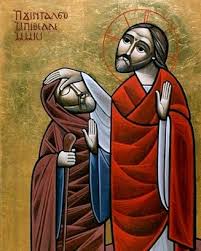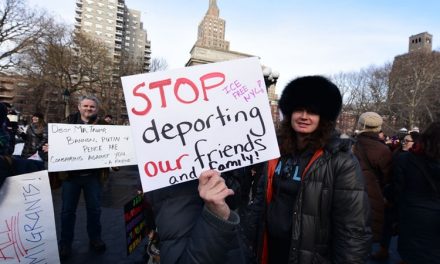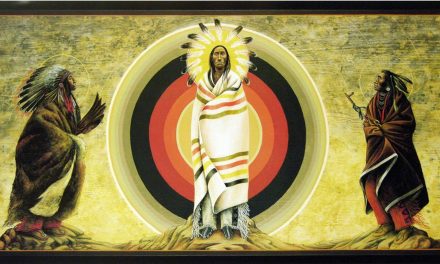After the election results were in, both Trump and Clinton called for the country to come together.
Now it is time for America to bind the wounds of division, to have to get together. To all Republicans and Democrats and independents across this nation, I say it is time for us to come together as one united people.
We have seen that our nation is more deeply divided than we thought. But I still believe in America and I always will. And if you do, then we must accept this result and then look to the future. Donald Trump is going to be our president. We owe him an open mind and the chance to lead.
We do clearly need to heal the wounds of division and overcome our deeply divided country. I worry, though, that we cannot do this if we do not first name and attend to the wounds that are plaguing us.
- There is a long history of racism in our country that has not been addressed and is still rampant today. It made its way into the election with the KKK supporting one candidate and the African American voters supporting the other (Clinton held an 80-point advantage among blacks (88% to 8%)).
- There is a long standing biased against people in rural parts of the country, where they are dismissed as white trash or hillbillies, and prejudice against them is still viewed as acceptable.
- There is long standing dismissal of the dignity of women that results in assaults that are rarely, if ever, reported much less prosecuted. It is a reality engaged in by several men (See here, here, and here) at the very highest levels of the campaign. Thus, it is no wonder that the gender gap in presidential vote preference is among the widest in exit polls since 1972.
- There is a long standing bias against conservative and religious viewpoints in higher education. This contributed to a preference of one candidate by those without a college degree.
- There is an implied—but no less real—threat to the advancements of the LGBTQ community with the rejection of “political correctness” and a promise to return to the days when America was great.
- There is a long standing fear of immigrants, expressed in words about walls and deportation, even though immigrants are key to economic growth (and even though Catholicism has consistently been an immigrant church).
On top of these wounds, inflicted on people by people with these biases, there are systemic issues that make the situation that much worse.
- There has been a vast loss of jobs that once supported the middle class, leaving a labor surplus. Many people only have part time employment or juggle several jobs and, in both cases, struggle to find any dignity in their work and in themselves.
- There is also a widespread drug addiction problem, especially in heroine, brought on not by recreational use but by people who were prescribed the “safe” drug Oxycontin. Pharmaceutical companies had rushed this drug to production and promised it did not foster addiction.
- While crucial to the well-being of children and couples, marriage has become a luxury item more and more reserved for the upper and middle classes.
- We no longer run into people of different classes, religions, or viewpoints as we have moved into housing enclaves with like minded people. The result is that it has become increasingly difficult to make friends with anyone different than one’s self and, thus, develop the necessary empathy to understand the other side.
- We even have different moral frameworks that keep us from understanding each other, even if we do end up talking to one another.
These are some of the “wounds of division”, and they should frighten us, given their depth. They make any kind of genuine community or tolerance or public will seem all but impossible. Political speeches about the need for unity speak of a genuine need but seem to gloss over the severity of the wounds.
Repentance, forgiveness, and reconciliation, these are the some of the most important tasks of the church. They come from the ministry of Jesus. They are one of the seven sacraments. They are the kind of work Pope Francis has called for when he says that the church should be a field hospital. As Christians, we should start now (and should have started long ago) with the task of asking forgiveness for our sins, encouraging those who sin to repent, and seeking out reconciliation between friends, families, neighbors, strangers, and enemies. We should do this not only for the good of those living in the United States but also because this is the form that love takes in our deeply divided world.





